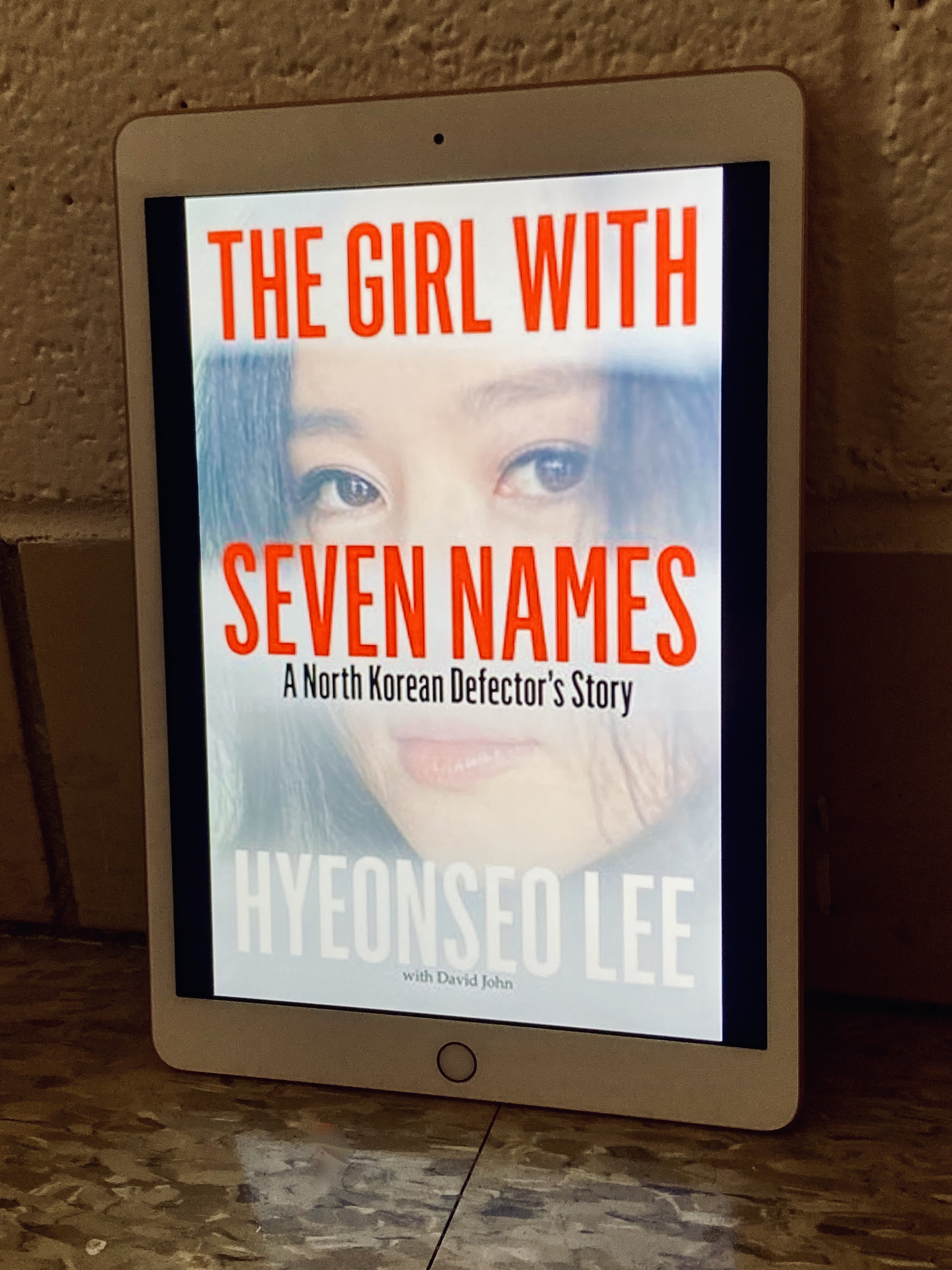Every year Winthrop appoints a book for students to read that teaches us about something new about a different culture to explore a topic that we might not know about. These books are chosen mostly for freshman students to focus on in their human experience classes. This year, that book is The Girl with Seven Names: A North Korean Defector’s Story by Hyeonseo Lee
“The Winthrop University Common Book is actually chosen during a long process by a committee of faculty members and Residence Life staff members.” Dr. Amanda Hiner, co-director of HMXP: The Human Experience said, “As a committee, we liked how accessible and engaging this book was, as well as the way in which the book addresses many of the themes of the HMXP course, including the value of personal autonomy, freedom, education, family, community, and diversity.”
This year’s Common Book is focused on the story of Lee, A North Korean defector who at the age of 17 unintentionally escaped North Korea and then later went back to rescue her mother and brother. Like the common books before it, The Girl with Seven Names has many cultural events associated with it. However, due to the COVID-19 pandemic, all of these events are online and asynchronous.
According to students, these events provide an entertaining and commutative way to learn.
“I think it’s important to have these events because it allows students to see different cultures or see different lifestyles that may not be like theirs.” Gabrielle Walker, a freshman biology major, stated. “It helps create more accepting adults in the future.”
For one of the events, students were able to watch an interview of Lee talking about her country and how she escaped from North Korea to China and finally living in Asia. During the interview, Lee talked about the hardships of her journey and leaving behind the country she loves, thinking it was the best place on Earth.
North Korea has a dictatorship ruling in their country that makes it hard for people to provide for their families and broken laws can be punishable by death. Lee talked in the interview about how she witnessed her first public execution at the age of 7. This, for her, was common to witness in her country.
Although this type of ruling was what she was used to, it’s a foreign one to us here in the U.S. that not many are aware of.
“I had no knowledge about the dictatorship rules in North Korea before this book,” sophomore Arianna Whitmire said.
Walker also didn’t know the finer details of North Korea’s laws before reading.
She said, “I only knew of the basics that we learn about communistic countries. One thing I learned was the different statuses they had in the country of families.”
One concept students can take away from Lee is her bravery and courage to go through what she went through and persevere. She’s inspired many with her story to do better and fight for what they want.
“I hope students will learn to want more out of their lives,” Whitmire said, “not only for the sake of themselves, but for their close ones as well.”
Although many students cannot personally relate to what Lee and other defectors go through, they can take the courage and willpower defectors had and apply it to themselves.
Another thing students can take away from the Common Book is that Lee wasn’t allowed to do or say certain things in her country otherwise she and her family would’ve been punished. In the United States, most citizens have the access to freedom that North Koreans don’t.
Dr. Katerina Moyon, co-director of HMXP said, “I hope students ‘walk a mile in their shoes.’ The point of the entire exercise is to begin to see a different perspective on the world.”
Despite knowing what it’s like to live in North Korea, Lee still loves and misses her country. Hyeonseo Lee explained in the interview how it’s hard for her to adjust to a new culture after all she’s ever known.
“I think it’s a fair feeling,” Walker said. “It’s all you’ve ever known. Conflicting emotions are a very real thing that many don’t acknowledge.”
Moyon also agreed and said, “I would say that this is a universal experience, though much more dramatic and in the forefront in North Korea. Sometimes in our own existence in the United States we struggle with laws or practices
that disagree with what we believe. Are we still Americans if we disagree? How do we distance ourselves from them or help change them…or live with them? Do they make us who we are? We too likely experience some cognitive dissonance from this situation.”
Lee’s story teaches students so much about what it’s like to grow up in a culture that has completely different laws and morals that might make you question what’s right and wrong. In the end, Lee fought for a better life for her and her family. She exemplified bravery and taught how valuable freedom is and to be thankful for it.
Photo by Emma Crouch




